Commissioners consider quadrupling some fees
Mystery of housing affordability eludes county leaders
The Commissioner’s work session was abuzz this Monday as community leaders were joined by State Rep. Steve Tharinger, State Rep. (and State Senator-Elect) Mike Chapman, and State Rep-Elect Adam Bernbaum, who attended virtually. The conversation focused on general issues (like funding an emergency management facility), public health priorities (syphilis is rising, but transmission from parent to child is down), and housing affordability.
“Your issues are not unique to the state,” said Representative Tharinger in response to Commissioner Ozias’ question about how more housing can be built at affordable rates. “The Building Code Advisory Committee — it’s safe to say that it’s had a certain philosophy that’s been generated by the existing governor,” hinted the representative.
Washington’s Governor Inslee is credited with promoting stringent building codes, particularly energy efficiency standards. These standards require more expensive materials and technologies, drastically increasing construction costs.
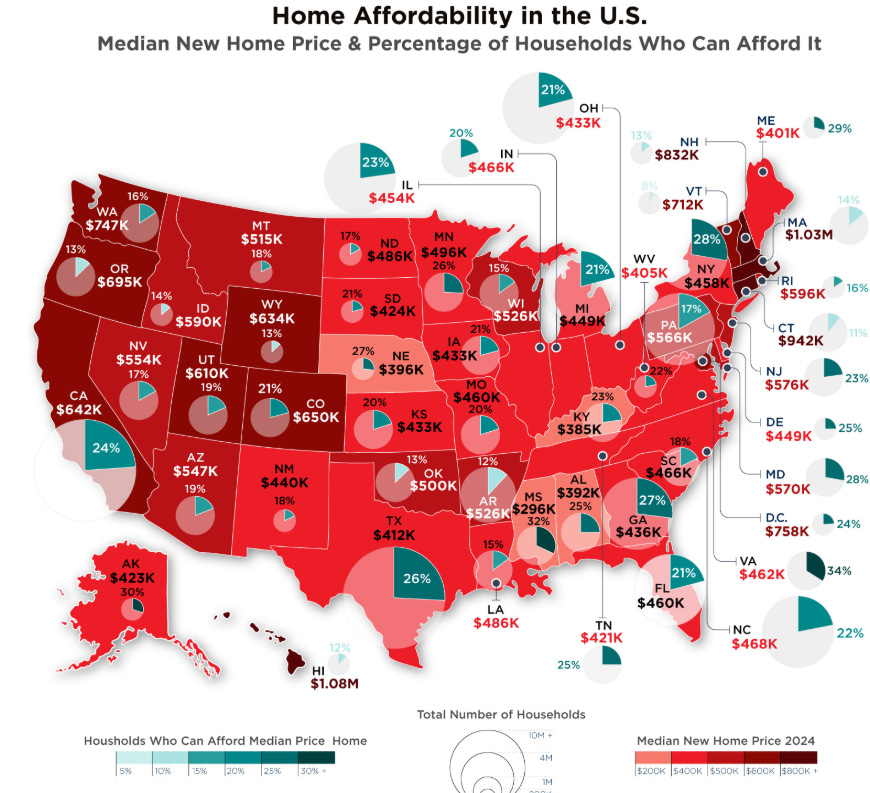
“They have driven a very ‘climate change agenda’ to limit climate change,” explained Tharinger. “I think all of us want to limit climate change. It is a problem — forest fires, sea level rise, all the different costs. Whether the Building Code Advisory group has gotten a little overboard, I think that’s a good discussion.”
“A little overboard” means that government regulation has increased the cost of new construction, on average, by over $140,000.
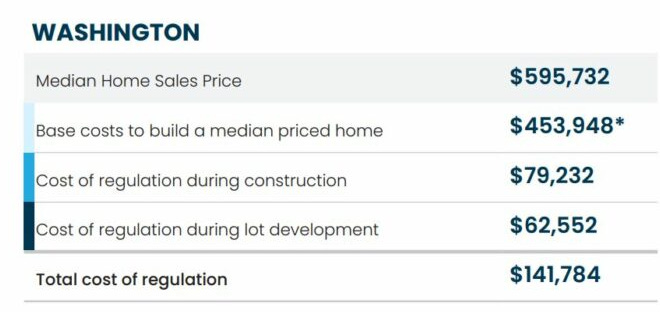
Administrator Todd Mielke shared that Peninsula Behavioral Health’s new luxury homeless housing complex will have required electric car charging stations. “You’re required to have electric car charging stations when most of your residents will never be in the position, in the foreseeable future, to purchase an electric vehicle, let alone own any vehicle.”
Mielke discussed housing’s cost per square foot, recalling a time not long ago when it was just $200-$300. “We had one project that was presented — very small units, I want to say between 450 and 500 square feet — and the cost per unit exceeded $450,000. We’re talking $1,000 per square foot to produce low-income housing.”
Peninsula Behavioral Health’s CEO, Wendy Sisk, spoke about prevailing wage. This minimum hourly wage must be paid to workers on public works projects (like the new 36-unit homeless housing facility being built on 2nd and Oak in Port Angeles.) “Our prevailing wage exceeds Seattle’s in many, many cases, which does not make a whole lot of sense,” said Sisk. “It’s pretty hard to choke down $354,000 for a 400 square-foot unit,” she told state leaders.
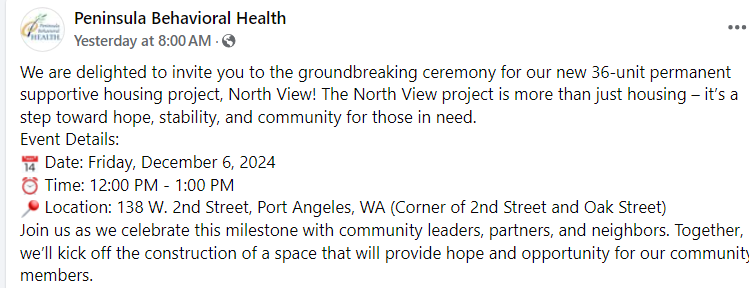
Economic Development Council Executive Director Colleen McAleer said that government-subsidized housing addresses only a small amount: “Maybe 1% of the housing needs we have. The other 99% needs to come from market-rate housing. From builders in our community.”
McAleer said whatever the State can do to lower costs would help get people into homes. “We’ve heard you can’t build under $500,000 for a single-family residence,” continued McAleer, who said lowering land costs and incentivizing ADUs (accessory dwelling units like “mother-in-law cottages”) would help.
“But we need help from the State Legislature to look at the cost/benefit analysis of some of this code that they’ve created through the Washington State Building Council,” continued McAleer. “I believe at least 51% of the people on that board ought to be affordable housing advocates because we’ve got a crisis, absolutely. And I think that improvement of energy usage is so miniscule relative to our housing prices that we’re dealing with right now. That’s the kind of action that I hope we’d see.”
How the County is taking action
Last week, when faced with a decision to curtail their reckless spending or demand that residents pay more, the commissioners unanimously approved two 1% property tax increases. Raising property taxes is the opposite of prioritizing housing affordability.
To compensate for their budget deficit, the commissioners are now considering raising fees on county services provided to its residents. If the commissioners approve the new fee schedule, fees will increase considerably.
For example, building permits, possibly having the most direct effect on affordable housing, would increase. A permit for a $500,000 home would increase by 20% from $3,233.75 to $3,878.80, and manufactured home permits would increase by 52%.
State Environmental Policy Act (SEPA) review fees would rise by 63%.
Shoreline Conditional Use Permits would more than quadruple.
It would cost $1,100 more for the hearing examiner to reconsider a decision.
County leaders say the adjustments are necessary because fees have remained unchanged since 2018. Still, that doesn’t explain why fees are increasing so drastically.
In a letter to the Commissioners, Director of the Department of Community Development Bruce Emery acknowledged that raising prices affects housing affordability. “To assist with promotion of new housing opportunities, we deliberately reduced permit fees related to short plats and subdivisions within designated UGAs to help facilitate new growth where appropriate.”
Growth in the Carlsborg UGA (Urban Growth Area) has been a focus since “Carlsborg Village Center” announced plans to build a 200-home development on 40 acres between Runnion and Spath Roads. Although a public hearing was held in May, “Phase 2” of that development has been listed for sale.
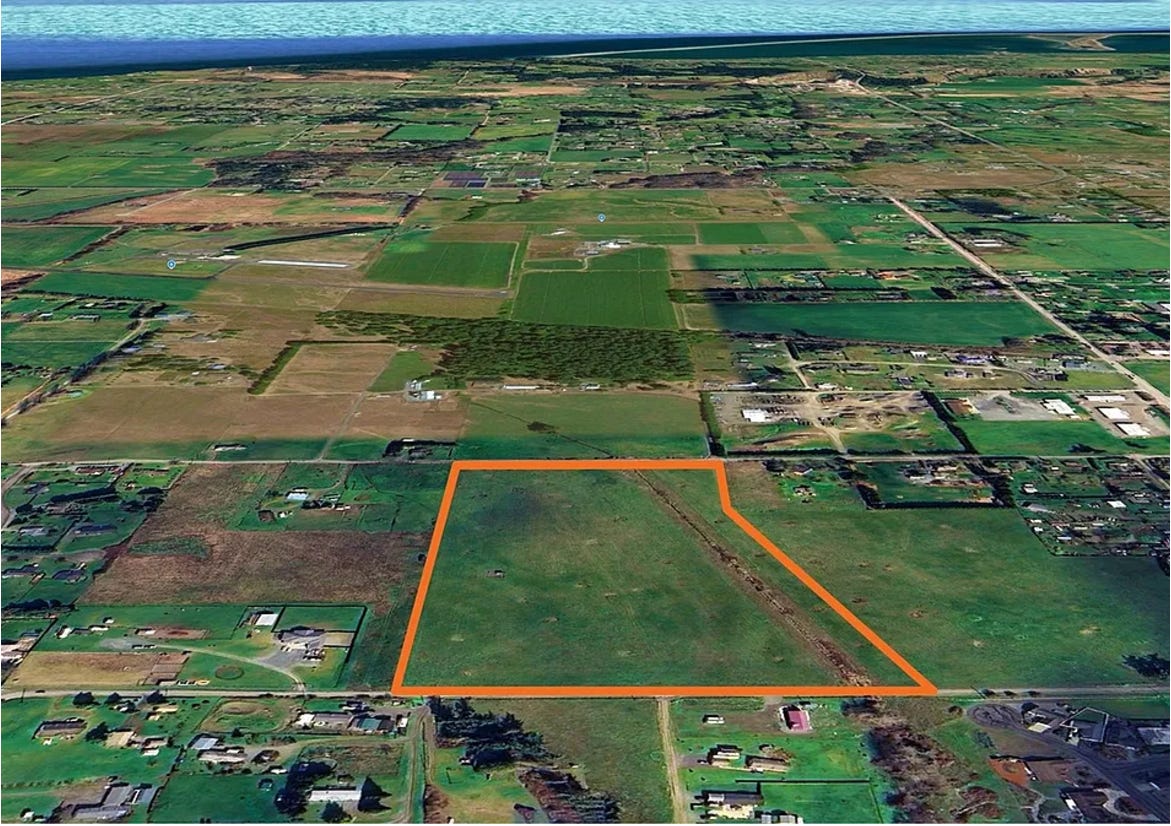
Director Emery’s letter to the Commissioners continued. “Revenue from an average year under the current fee schedule would total $96,950. Accounting for fees owed to the Hearing Examiner ($39,667) and for the reduce land division fees in UGAs ($21,086), The revenue expected, based on an annualized average permit year, will be $168,346, or 74% above the average year estimate.”
Increasing expenses for developers and contractors means those costs will be passed onto hopeful homeowners. However, a chance to collect 74% more may be too tempting for a Board of Commissioners that can’t stop spending money.
Public hearing
The Clallam County Board of Commissioners will hold a public hearing on Tuesday, December I0, 2024, at 10:30 a.m. to consider adopting the new fee schedule, which can be viewed here.





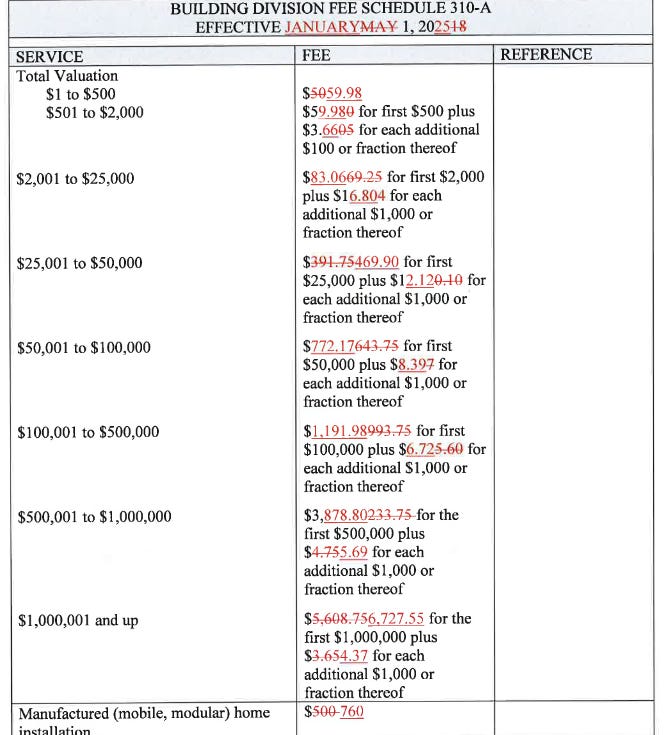

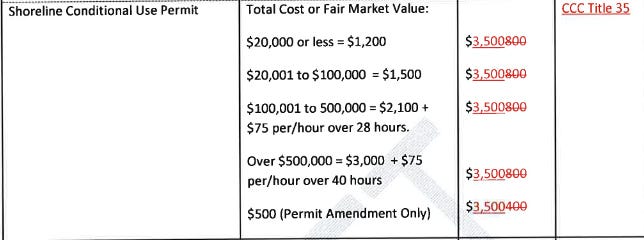
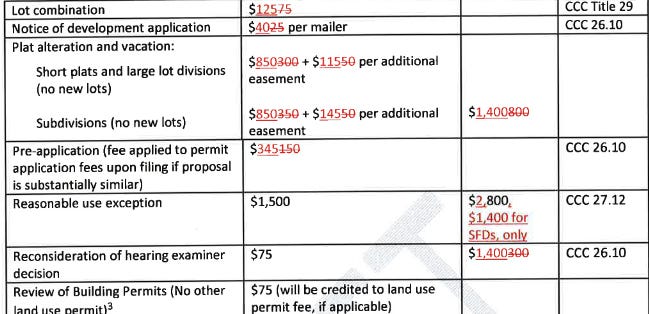
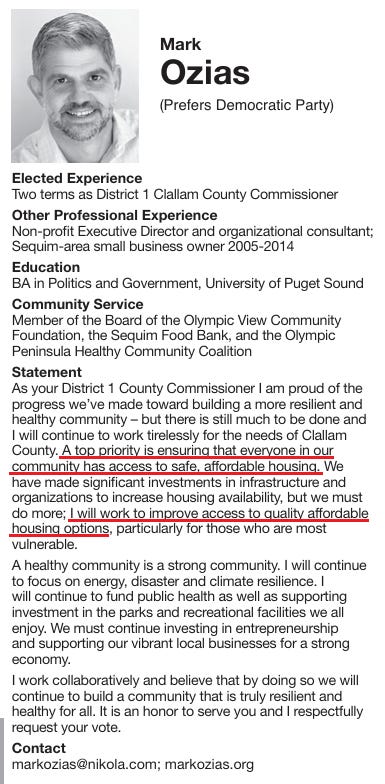
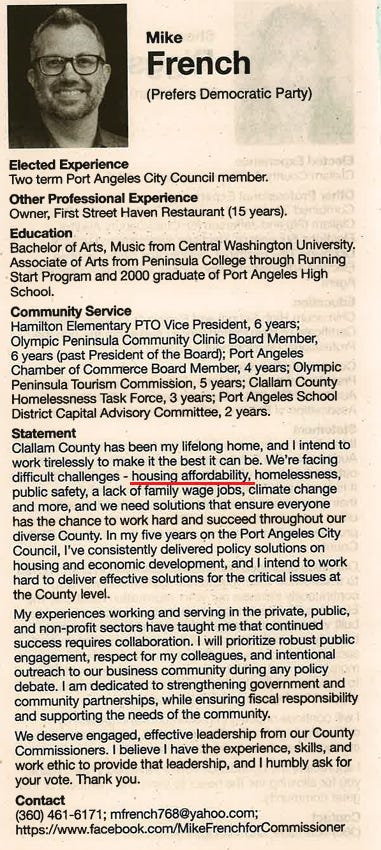
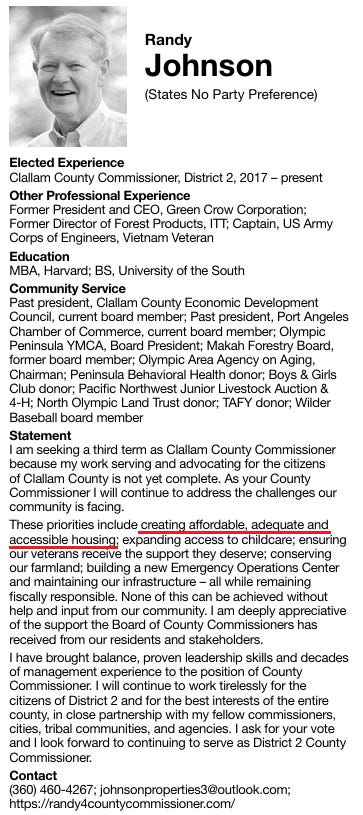
This....https://youtu.be/rwPM01cbQBc?si=E-Z92_9ZTx5ex8Ye
The commissioners have lost it and their leaders of the state are whipping them harder.
If the climate is changing, who is to say we have any power to stop it. Who are we to think we are the force that makes the world turn or not. It’s all a cash grab. See you guys at the meeting on the 10!